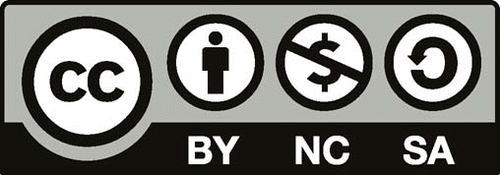The C-change project was funded by JISC and the Higher Education Academy as part of the Open Educational Resources Programme. The Higher Education Funding Council for England (HEFCE) provided an initial £5.7 million of funding for 29 pilot projects (April 2009 to March 2010).
The C-change in GEES project created a substantial body of Open Educational Resources (OER) on the theme of climate change and sustainability and also captured experiences and produced guidance to assist others in the release their own OER.
Some readers will be asking “what are Open Educational Resources?” Essentially OER are teaching, learning and research resources, such as PowerPoint, Word documents or images that are free to use and publicly available.
A key element to OER is being able to license resources so that they are freely available to everyone. Creative Commons (CC) licenses are a simple way to allow the owner to keep copyright but allow other people to copy and distribute their work on the conditions they specify. By looking at a CC logo attached to a resource an end user can tell what they can and can't do with a resource without having to ask the author.
For example the CC logo illustrated indicates the following:
BY - “Attribute the work in the manner specified by the author”
NC (Non Commercial) - “You may not use this work for commercial purposes”
SA (Share Alike) - “If you alter, transform, or build upon this work, you may distribute the resulting work only under the same or similar license to this one”
The above CC licence was used to release all the C-change OER by academic project partners at:
University of Exeter: Department of Geography
Keele University: School of Physical and Geographical Sciences
University of Liverpool: Department of Earth and Ocean Sciences
Open University: Department of Earth and Environmental Sciences
University of Wales, Newport: Centre of Excellence in Learning and Teaching
University of Southampton: School of Ocean and Earth Science
The project was also supported by:
The Higher Education Academy Subject Centre for Geography, Earth and Environmental Sciences (GEES)
The Royal Geographical Society with the Institute of British Geographers (RGS-IBG)
The Geological Society
The Institution of Environmental Sciences (IES)
University of Plymouth (UoP): Directorate of Teaching and Learning
University of Plymouth: Higher Education Learning Partnerships (HELP) CETL
The six academic partners each produced a case study summarising their experiences of the C-change project. Three articles from the University of Southampton, University of Wales, Newport and University of Exeter are presented here in this edition of planet with the other 3 case studies appearing in the next issue, Planet 25.
These following articles describe approaches to updating and modification of learning resources in preparation for open release, explore whether it is more useful to release a whole unit of study or smaller components (i.e. granularity of resources), and consider the challenges of clearing third party material from publishers. OER presents an opportunity to showcase the quality of a department's teaching and research and specifically in this project to develop the availability of high quality climate change and sustainability education.
The OER from this project can be found in an number of places online but they are all collected together in the JorumOpen repository (http://open.jorum.ac.uk/xmlui). Using the search term “GEESOER” in the JorumOpen search will return all the resources from the C-change project. Feel free to use these resources or contribute your own.
